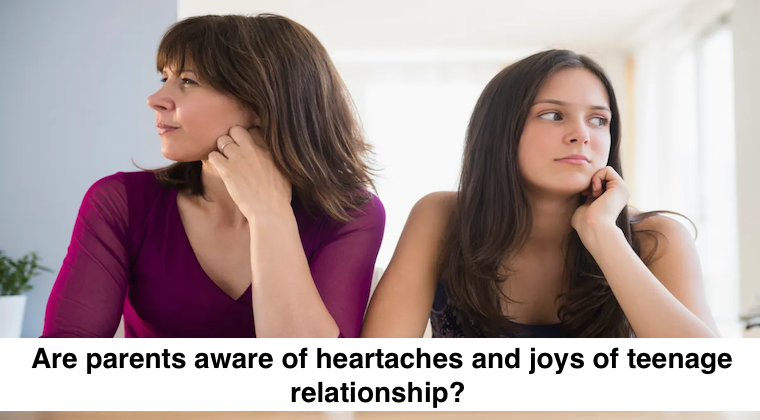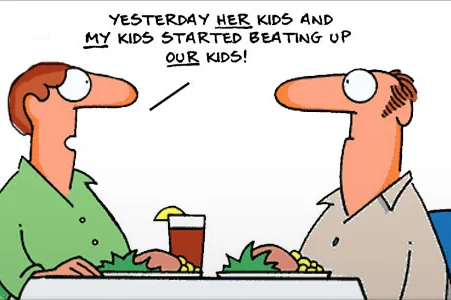+1 845 259 2974 (11 a.m to 7 p.m CST)
Are Parents Aware of Heartaches And Joys of Teenage Relationship?

Teenage years are often a mixture of emotions, marked by first experiences, self-discovery, and deep connections. Among these, teenage relationships hold a special place, with their unique mix of heartaches and joys. While they might seem fleeting to adults, for teenagers, these relationships are exceptionally meaningful. But how aware are parents of the emotional rollercoaster their teenagers go through? This article explores the nature of teenage relationships, the extent of parental awareness, and the importance of bridging the gap between generations.
The Nature of Teenage Relationships
Teenage relationships are deeply intense because they represent many "firsts": the first crush, the first date, the first breakup. At this stage of life, emotions run high as teenagers navigate new experiences. Their feelings are amplified by hormonal changes and a developing sense of identity, making every high feel euphoric and every low feel devastating.
Teenagers find immense joy in relationships through feelings of companionship and validation. These connections provide a sense of belonging and acceptance, especially in a phase when they are exploring who they are. However, the flip side is equally profound. Heartaches from misunderstandings, breakups, or rejection can feel overwhelming and isolating.
From an adult perspective, these experiences may seem transient or inconsequential. Parents often dismiss teenage relationships as “puppy love,” not realizing that, for teenagers, these experiences shape their emotional growth and resilience. This gap between teenage perception and parental understanding is at the heart of the issue.
How Much Do Parents Really Know?
Parents vary widely in their awareness of their teenager’s relationships. While some parents take an active interest and provide support, others remain unaware, dismissive, or overly protective. One major barrier is the lack of open communication between teenagers and parents. Teens often hide their emotional experiences due to fear of judgment, embarrassment, or the belief that their parents "won’t understand."
Cultural and generational factors also play a significant role. For instance, in some cultures, discussions about love and relationships are considered taboo, further widening the communication gap. Even in more open-minded households, parents might miss subtle signs of their teenager’s emotional highs and lows such as mood swings, changes in academic performance, or sudden withdrawal.
Without intentional effort, many parents remain oblivious to the emotional depth of their child’s relationships, underestimating the joy or heartbreak these connections bring.
The Impact of Parental Awareness
Positive Effects of Parental Support
When parents are aware and supportive, the benefits for teenagers are immense. By providing guidance and emotional support, parents help teens navigate the complexities of relationships. A supportive parent can teach teens how to set healthy boundaries, manage conflicts, and handle heartbreak, building emotional resilience for the future. This open communication fosters trust and creates a safe space for teenagers to share their joys and struggles.
Consequences of Parental Unawareness
On the flip side, when parents are unaware or dismissive, teenagers may feel isolated and misunderstood. They might turn to peers or the internet for advice, which can lead to misguided decisions. In the absence of parental guidance, teens may struggle to process their emotions, leading to anxiety, depression, or low self-esteem. A lack of parental awareness can also strain the parent-teen relationship, making teenagers less likely to seek help in critical moments.
Consider the story of Sarah, a 16-year-old who experienced her first breakup. Without parental support, Sarah bottled up her feelings, which eventually impacted her mental health and school performance. In contrast, when her friend’s parents took the time to listen and provide reassurance during a similar situation, it helped her heal faster and grow emotionally. These contrasting outcomes highlight the importance of parental involvement.
How Parents Can Bridge the Gap
1. Open Communication
Parents need to create an environment where teenagers feel comfortable discussing their relationships. This starts with active listening, letting teens share their experiences without fear of judgment. Asking open-ended questions like, “How are you feeling about this?” can encourage teenagers to open up.
2. Educating Themselves
Understanding teenage development is crucial. Parents should recognize that teenage relationships are not just fleeting infatuations; they are opportunities for emotional growth. Educating themselves on the emotional needs of teenagers can help parents respond with empathy and guidance.
3. Building Trust
Trust is the foundation of any strong relationship. Parents can build trust by showing interest in their teenager’s life without prying or overstepping boundaries. When teenagers know their feelings are respected, they are more likely to confide in their parents during moments of joy or heartache.
Teenage relationships are more than just “puppy love.” They are formative experiences that shape a teenager’s emotional and social development. While parents may not always realize the depth of their child’s emotions, becoming more aware and supportive can make a world of difference. By fostering open communication, educating themselves, and building trust, parents can help their teenagers navigate the joys and heartaches of relationships with confidence and resilience.
So, the next time your teenager comes home beaming or heartbroken, take a moment to listen. You might just discover that these experiences are as meaningful to them as your own first love was to you. Are we, as parents, ready to embrace this challenge with empathy and understanding?























